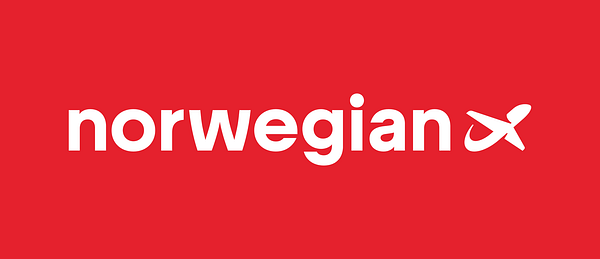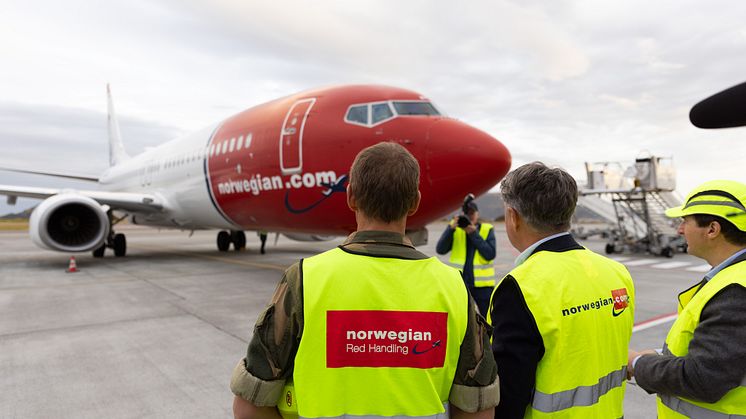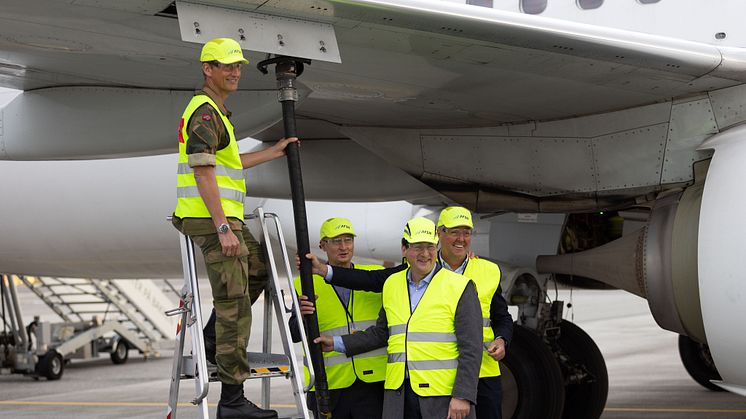
Press release -
Norwegian Armed Forces creates aviation first with biofuels
The first use of biofuel for the defence sector's business trips with Norwegian was marked at Ålesund Airport Vigra today. Norwegian will blend 15 percent biofuel on over 1 million business trips until 2028. The agreement is the largest of its kind in Norwegian history, and most likely the first in a NATO context.
"This agreement is an important step in the defence sector's climate and environmental strategy. The sector aims to cut 20 per cent of CO2 emissions by 2030 and reduce emissions from purchased goods and services. To achieve these goals, reduced emissions from business travel and the Armed Forces' own flights are central. The work that has been done to pave the way here is important," says Chief of Defence Eirik Kristoffersen.
Norwegian has now delivered 1 million litres of biofuel to the airport in Ålesund with the help of the Finnish energy group St1 and the fuel supplier AFSN. The biofuel will cover 15 % of the total consumption of the defence sector's more than 250,000 business trips in 2024 and will reduce CO2 emissions by over 2,000 tonnes this year.
Norway’s defence sector at the forefront
"The Norwegian defence sector is leading the way here. All parties involved can be proud of having created an agreement model that is at the forefront globally. We hope both the public and private sectors will follow suit in the future," said Geir Karlsen, CEO of Norwegian.
The Norwegian Defence Materiel Agency, which administers the agreement, confirms that Norway is ahead of the pack in this field.
"We have worked with the industry, organisations and experts to shape this tender for business travel. We are very pleased with the result, which shows that we can be at the forefront. The tender has already received international attention,” says Per Arne Johnsen, acting director of procurement in the Norwegian Defence Materiel Agency.
Short-distance biofuels increase security of supply
Currently, no biofuel is produced for aviation in Norway. To ensure that the agreement contributes to local demand, the defence sector has set the requirement that refuelling must take place in Norway.
"Access to biofuels is important from a climate perspective, while also contributing to increased security of supply. Especially if the biofuel is short-travelled. Therefore, the defence sector wants to facilitate increased production of these types of fuel in Norway," says Chief of Defence Eirik Kristoffersen.
Norwegian has chosen to purchase short-haul biofuel from St1's newly established biorefinery in Gothenburg Sweden.
“Our biofuels production in Gothenburg enables us to serve Nordic customers closer and efficiently. Voluntary agreements, such as the Norwegian defense sector has committed, contribute to predictability and enable us to continue our focus on executing energy transition ," says CEO Henrikki Talvitie of St1.
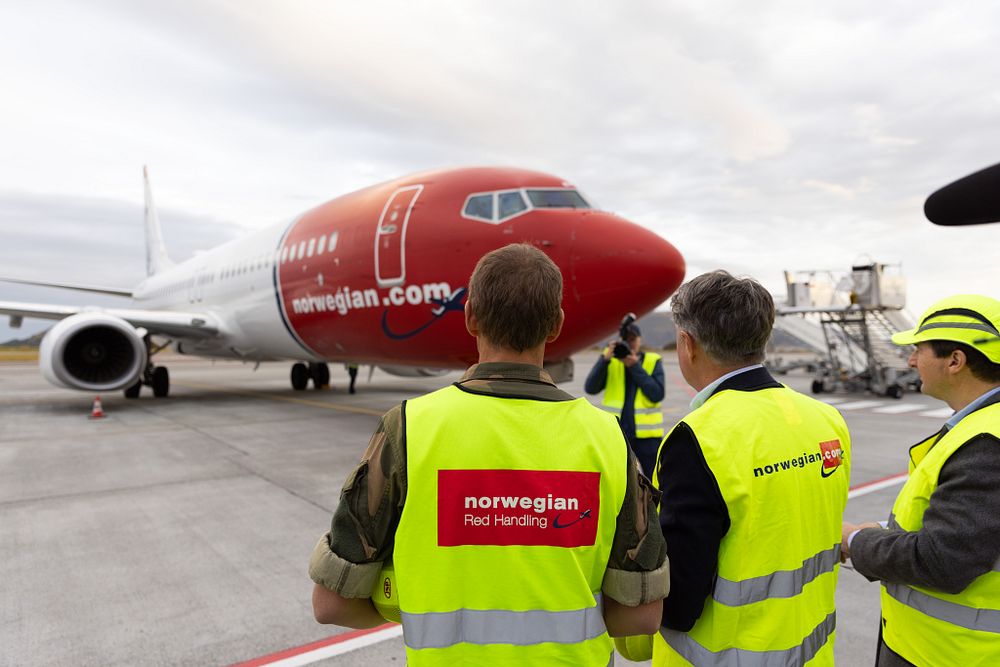
About the agreement:
- The agreement includes a requirement that 15 percent of the defense sector's business travel must be flown using biofuel or other low-emission fuels.
- All biofuel under the agreement must be refueled in Norway.
- The defense sector's travel consumption is estimated at around 250,000 trips per year. The agreement spans four years, starting in February 2024. It increases Norway's biofuel consumption by nearly 20 percent. (The blending mandate of 0.5 percent corresponds to approximately 5.4 million liters of biofuel in 2023, while the defense agreement equates to 1 million liters.)
About the fuel:
- Complies with the EU's sustainability criteria and documentation requirements.
- Produced at St1's refinery in Gothenburg and shipped to Ålesund.
- Aviation biofuel has about 80 percent lower CO2 emissions throughout its life cycle compared to regular jet fuel.
- About the Norwegian Armed Forces.
At the request of politicians, the Norwegian Armed Forces carry out several tasks to keep Norway safe. The Armed Forces are the most powerful instrument available to the Norwegian authorities. We are tasked with several duties on behalf of society and have summarised our responsibilities into five main missions:
- Protecting Norway and our allies.
- Conducting surveillance and intelligence.
- Securing our borders and political freedom of action.
- Contributing across the globe.
- Supporting civil society.
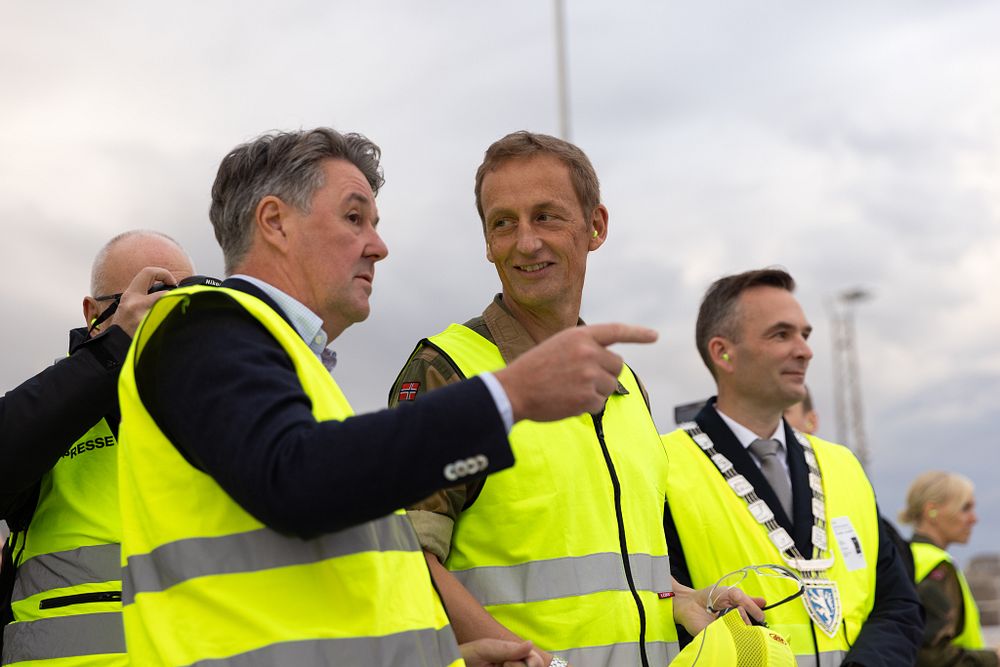
About Norwegian
The Norwegian group is a leading Nordic aviation company, headquartered at Fornebu outside Oslo, Norway. The company has over 8,200 employees and owns two of the prominent airlines in the Nordics: Norwegian Air Shuttle and Widerøe’s Flyveselskap.
The Norwegian group has sustainability as a key priority and has committed to significantly reducing carbon emissions from its operations. Among numerous initiatives, the most noteworthy is the investment in production and use of fossil-free aviation fuel (SAF). Norwegian strives to become the sustainable choice for its passengers, actively contributing to the transformation of the aviation industry.
The Norwegian Defence Materiel Agency (NDMA)
Norwegian Defence Materiel Agency (NDMA) is an agency directly subordinate to the Norwegian Ministry of Defence. Our main task is to procure, manage and retire military materiel for the Norwegian Armed Forces and other agencies in the defence sector.
About St1
St1 Nordic Oy is an energy group whose vision is to be the leading producer and seller of CO2-aware energy. The Group researches and develops economically viable, environmentally more sustainable energy solutions. St1 focuses on fuels marketing activities, oil refining and renewable energy solutions such as waste-based advanced biofuels and industrial wind power. The Group has more than 1,250 St1 and Shell branded retail stations and gas filling points in Finland, Sweden and Norway. With its headquarters in Helsinki, St1 currently employs more than 1,000 people.
About AFSN
AFSN delivers, distributes, sells, and markets aviation fuel to airlines at 16 airports in Norway. In addition, AFSN supplies fuel to bulk customers, with delivery by truck, ship, or self-pickup. With both local presence and global reach, we ensure a reliable supply of high-quality fuel to customers across the country. AFSN has a strong focus on sustainability and actively contributes to reducing CO2 emissions in the aviation industry. AFSN is owned by Shell Aviation and St1 in a 50/50 joint venture.
Photo: Morten Bergene.
Topics
Categories
About Norwegian
The Norwegian group is a leading Nordic aviation company, headquartered at Fornebu outside Oslo, Norway. The company has over 8,200 employees and owns two of the prominent airlines in the Nordics: Norwegian Air Shuttle and Widerøe’s Flyveselskap. Widerøe was acquired by Norwegian in 2024, aiming to facilitate seamless air travel across the two airline’s networks.
Widerøe’s Flyveselskap, Norway’s oldest airline, is Scandinavia’s largest regional carrier. The airline has more than 3,500 employees. Mainly operating the short-runway airports in rural Norway, Widerøe operates several state contract routes (PSO routes) in addition to its own commercial network. In 2023, the airline had 3.3 million passengers and a fleet of 48 aircraft, including 45 Bombardier Dash 8’s and three Embraer E190-E2's. Widerøe Ground Handling provides ground handling services at 41 Norwegian airports.
The Norwegian group has sustainability as a key priority and has committed to significantly reducing carbon emissions from its operations. Among numerous initiatives, the most noteworthy is the investment in production and use of fossil-free aviation fuel (SAF). Norwegian strives to become the sustainable choice for its passengers, actively contributing to the transformation of the aviation industry.
